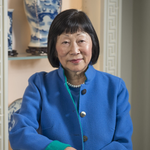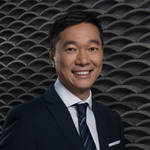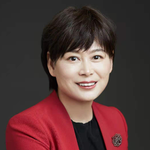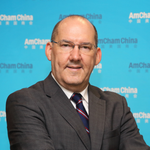- Registration at Beijing ETown Conference Venue
Tea & coffee
- Opening remarks from Beijing ETown Leadership
Beijing Economic-Technological Development Area on A China perspective on the global economic challenges
- Leadership Context
Ambassador Julia Chang Bloch•Horace ChowA China perspective on the global economic challenges, opportunities for talent growth through crisis, and the desired role of education facing these unprecedented challenges
• Keynote: People and Culture: Using Workplace Analytics to Create Visibility and Make Better People Decisions (10 min)
• Keynote: HR at Crossroads: Transforming and Attracting Talents in A World Changed by Covid-19 (10 min) - Panel I. C-Suite Dialogue | Learning about ourselves to set the right direction: The truths about our organizations in managing and innovating at challenging times
Fernando Vallina•Sylvia Pan•Michelle Zhang•Charise LeTough times are great and unavoidable opportunities for us to come face to face with our strengths and weaknesses and leadership matters. When Covid-19 first broke out in China in January, one of the earliest conversations that drove corporate and organizational behaviors, decision-making and performance amid the pandemic was what strengths and weaknesses there were in our organizations. And building on them, how could we develop responses, make choices, and sustain businesses? This discussion will harness thinking and experiences from C-suite executives and examine the successes and failures companies have witnessed through the Covid-19 battle. Key parameters of the discussion may include:
• What’s the core mission and purpose of our organizations, and how does crisis such as Covid-19 change them?
• For each organization on a whole and across different layers of management, how to define and measure our strengths and weaknesses at a time of crisis? How may they be viewed differently from businesses as usual times? Advice for leaders?
• What are the best ways to leverage our strengths and improve weak areas, so we optimize our core competencies for internal and external delivery. Examples of success and mismatch? Unintended consequences?
• With the strengths well positioned and weaknesses properly addressed, what are the examples of continued innovation and transformed business models?
• For organizations to be able to navigate through the challenges and grow, what are the changed expectations for HR to create value for organizations and business?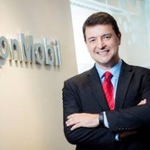
Fernando Vallina
Chairman at ExxonMobil (China) Investment Co., Ltd.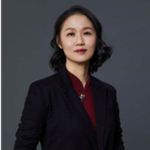
Sylvia Pan
Vice President United Family Healthcare; General Manager and CEO of Beijing United Family Hospital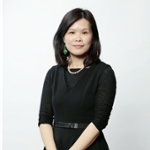
Michelle Zhang
Head of HR at Pfizer Investment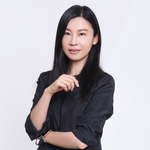
Charise Le
Executive Vice President & Chief Human Resources Officer of Schneider Electric
- Tea break & networking
- Panel II. Making Choices: Together, how do we fulfill the shared responsibility between managing business recovery and enhancing employee experience?
Melody Xu•Vivian Liu•Briana Graydon•Charles Shao•Lin GaoAt times of crisis, how do we set / reset priorities of organizations? Starting from leadership to each employee, how do we align on and fulfill our shared responsibilities to realize the endurance of our organizations, businesses and each individual? Just like reopening the economy amid a pandemic is tough, recovering especially short-term business for growth and enhancing employee experience can sometimes be at odds with each other. However, resilient organizations are communities that ought to be able to accommodate both reasonable business targets and support for their people. This discussion is meant to be a dialogue amongst business and functional leaders across different parts of organizations to share their experience, lessons learned, challenges, questions, sometime frustration, and stories in making tough choices. As part of this session, key issues to be discussed will include:
• Business targets can be largely quantifiable, but how do we define and measure employee experience, especially that at a time of crisis?
• Who bears these responsibilities? And how can HR help to keep up organizational morale?
• Speaking of pressure, are short-term recovery and employee experience necessarily at odds with one another? Is it a matter of prioritization? Are they reconcilable?
• How to make sense out of the choices made? Why have some organizations made certain choices versus others? And what are they results and consequences?
• In a prolonged crisis, where does employee experience fit when uncertainties increase, and how does its position change from short-term to long-term business recovery?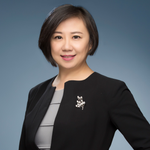
Melody Xu
Head of Human Resources, Greater China at HP Inc.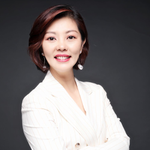
Vivian Liu
Head of HR, Greater China at Amazon Web Service
Briana Graydon
Head of HR - China Enterprise Talent Initiatives at Johnson & Johnson (China) Investment Ltd.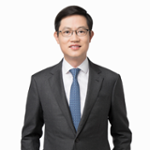
Charles Shao
Senior Client Partner at Korn Ferry
Lin Gao
Executive Coach/ Trainer/ Writer/CEO of Message Coach
- Panel III. Redefining “the Future of Work:” Has public health crisis such as Covid-19 reshaped our views on organizational and business resilience?
Rebecca Liu•Yanping Wang•Maria Yin•Jason Lu•Annie WangUntil Covid-19, our conversations on the future of work had largely focused on infrastructures such as workspace strategy and technological capabilities. Work from home (WFH) started as a requirement because of lockdown but triggered a number of long-term oriented “way of work” potentials that would have implications to the “future of work” way to shape and manage organizations. While the pandemic prolongs and the control measures normalize, some of the temporary expediency may become permanent practices. How can organizations adapt to these new potentials and continue to thrive while embracing the changing ways of the “future of work” in terms of:
• What can HR support your organization to prepare for a prolonged pandemic?
• Is WFH sustainable? And how can we transform the purpose of a physical office space?
• Has Covid-19 changed our definition on infrastructural requirements needed to achieve business results, employee experience and client effectiveness? What can one or two potential scenarios look like?
• For leadership across different management layers of an organization, how do we influence and manage employees in a “future of work” setting? How to ensure and increase productivity? What may and may not work?
• How can organizations enable their employees to achieve client effectiveness?
• Is there a boundary of flexibility? What may work for “future of work,” and what may not?
• What will be asked for differently in terms of “future talents” suitable for reshaped organizational and business resilience?
Rebecca Liu
Vice President for People and Organization of Mars Wrigley China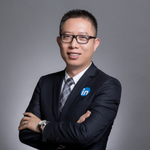
Yanping Wang
General Manager, Public Affairs, LinkedIn China at LinkedIn China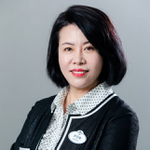
Maria Yin
HRVP at Universal Beijing Theme Park and Resort
Jason Lu
President of Chipone Technology(Beijing)Co., Ltd.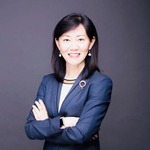
Annie Wang
HRVP, China & APAC at Bayer (China) Limited
- Lunch box luncheon
Gloria Xu•Alan Beebe
